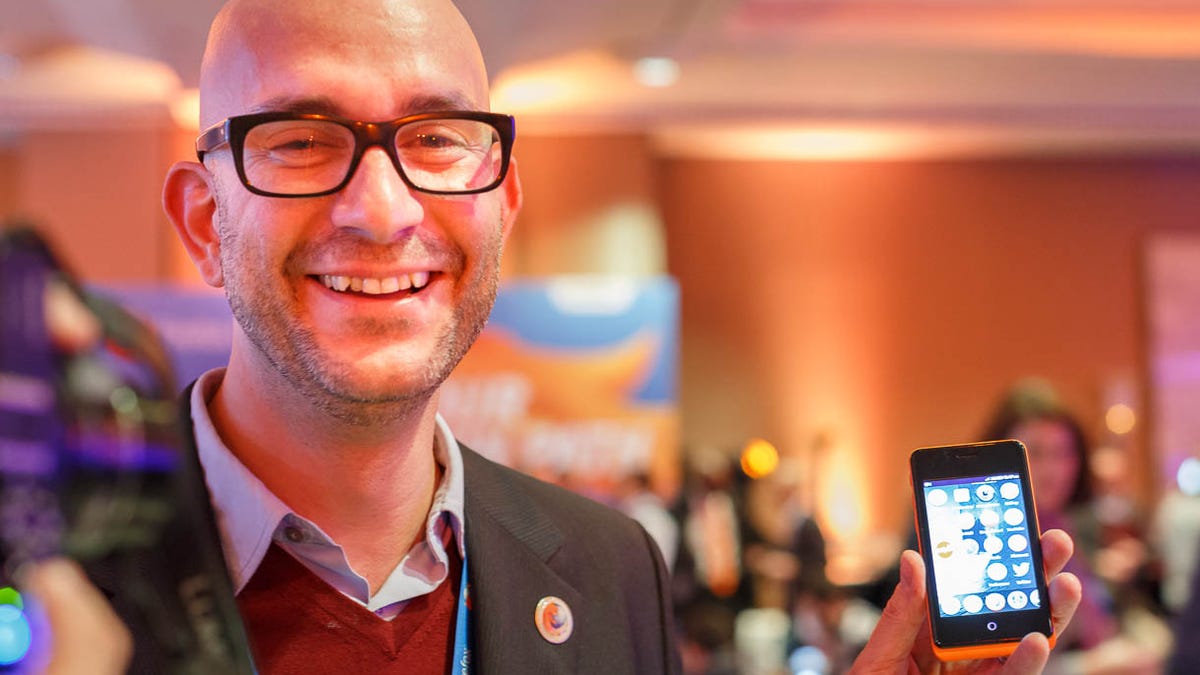The elusive third great mobile OS
<b>commentary</b> BlackBerry. Windows Phone. Firefox. Tizen. Ubuntu. There's a lot of interest in creating an alternative to Android and iOS. But the lack of concentrated industry support may spell doom.

There's no better illustration of the intense competition in the wireless industry than the race to establish another legitimate operating system behind Android and Apple -- where else is third place considered a lofty goal for so many major players?
Yet that's exactly what nearly a dozen companies are trying to achieve. While this year's Mobile World Congress wireless trade show was light on blockbuster smartphone and tablet announcements, it was heavy on burgeoning operating systems and new ways of thinking about mobile devices.
Mozilla's FireFox OS made a big splash at the show, as did Tizen, shepherded into reality by Samsung Electronics and Intel. The Ubuntu mobile OS, which won CNET's best of show award, popped up here and there if you knew where to look. Jolla CEO Marc Dillon talked up his Sailfish OS during a keynote address. Nokia continued to roll out new smartphones running on Microsoft's Windows Phone platform. BlackBerry, meanwhile, is scheduled to release its BlackBerry Z10 in the U.S. in the coming weeks.
It's a natural reaction to the increasing dominance of Google's Android and Apple's iOS operating systems, which combined accounted for 91 percent of the market in the fourth quarter, according to IDC. As much as the industry players want to publicly play nice with each other, the carriers and vendors are all working to wrest back some of the control.
While I applaud their efforts, I can't help but think that most of them are doomed to failure. It's not that any of the operating systems are particularly bad -- although the early builds of Firefox and Tizen I tried out were both pretty rough -- but there seems to be a lack of any cohesive support behind any of them. It's all scattershot; which only leads me to believe that Android and iOS, which both have tons of consumer, developer, and carrier support behind them, will continue to thrive for a while.
"If there's going to be a big three, it won't happen if the industry players are themselves fragmented," Rajeev Chand, an analyst at Rutberg & Co., told me in a recent interview.
Just look at the two largest potential third players: Microsoft and BlackBerry. Both make a great case for why their operating system will be No. 3, but the lack of committed support from the carriers is telling. Sure, AT&T sells the Lumia phone and related Windows 8 products, but are any of the other carriers as enthusiastic? It's still unclear just how much support BlackBerry will get, but we should get more of an indication in the coming weeks.
When you get through the rest of the operating systems, the support fragments even further. Firefox has rounded up 18 carriers to support the OS, although few have committed to actually selling the devices. A different set of carriers, meanwhile, have committed to Tizen, which they believe will power high-end smartphones.
Another issue is whether the need for a third operating system is an industry problem or a consumer problem. It's clear the carriers and other vendors want an alternative OS to get behind to reduce their reliance on Android and iOS, but do consumers really care about that? For now, most are perfectly happy with their Android and iPhone choices.
AT&T Mobility CEO Ralph de la Vega told me that he believes there's room for more than three mobile operating systems, and even left the door open for an OS like Firefox -- as long as there is consumer demand for it. And while choice is good for the consumer, too much choice isn't necessarily a good thing.
"For consumers, it's going to be all about confusion," Chand said. "You show up at a retail store, and there are a bunch of things going on. It'll just be confusion."
Ultimately, I believe consumers will clamor for different options. The issue of "iPhone fatigue" has started to crop up, especially with Apple only making incremental improvements to each subsequent product. That creates an opening for something different to emerge.
Whether any of these operating systems will fill the gap remains to be seen. This year's show was seemingly about throwing everything against the wall to see what sticks. I suspect there will be a clearer indication of a potential winner in a year's time.
Hopefully, it gets the full backing of the industry. Otherwise, that elusive third great OS will remain just that.

